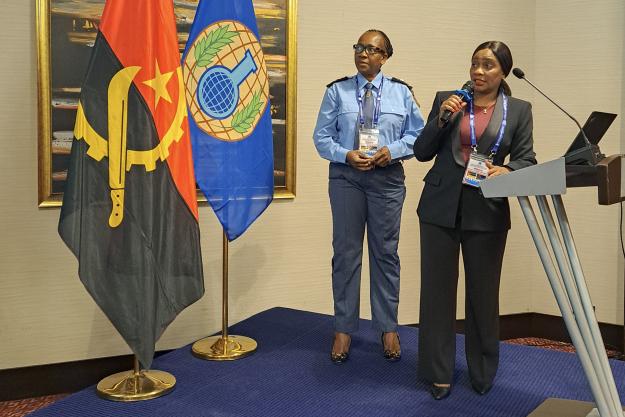THE HAGUE, Netherlands—9 December 2024—The Organisation for the Prohibition of Chemical Weapons (OPCW) hosted a landmark “Workshop for Customs Training Institutions on implementing the Chemical Weapons Convention (CWC)” from 3 to 5 December 2024 in Luanda, Angola. The workshop was designed to enhance the capacity of customs authorities from Portuguese-speaking countries to implement CWC provisions in their daily operations.
The event was conducted in partnership with the World Customs Organisation (WCO). Thirty-six participants from six countries (Angola, Cabo Verde, Guinea Bissau, Mozambique, Sao Tome and Principe, and Timor-Leste) received training, with experts provided by Brazil, Portugal, and Zimbabwe.
Admiral José Maria de Lima, Angola’s Secretary of State for National Defence, closed the training by stating “We are honoured to have hosted this significant workshop, welcoming experts from the OPCW, WCO, National Authorities, customs trainers, and other sectors from Portuguese-speaking countries. The event has facilitated the exchange of best practices, strengthened the participants’ competencies, and enhanced national regimes for controlling the international transfer of dual-use chemicals.”

The workshop underscored the importance of the CWC in regions facing threats from non-state actors, highlighting CWC legislation as the foundation for robust control mechanisms. It emphasised the need to strengthen enforcement of relevant legislation to monitor movements of chemicals through less protected border areas, thereby enhancing border security and promoting sub-regional, regional, and global security.
The event also introduced innovative training methodologies. Participants identified critical areas for trade control enforcement and learned about the tools and resources to improve operational frameworks and procedures for monitoring the transfer of scheduled chemicals and combating the trafficking of toxic chemicals.
Additionally, the participants forged partnerships and regional cooperation networks, which will help them overcome resource gaps and enhance the collective ability effectively to manage chemical safety and security challenges.
The OPCW remains committed to supporting member states in building stronger customs control capacities and enhancing regional security in line with the goals of the CWC.
Background
As the implementing body for the Chemical Weapons Convention, the OPCW, with its 193 Member States, oversees the global endeavour to permanently eliminate chemical weapons. Since the Convention’s entry into force in 1997, it is the most successful disarmament treaty eliminating an entire class of weapons of mass destruction.
In 2023, the OPCW verified that all chemical weapons stockpiles declared by the 193 States Parties to the Chemical Weapons Convention since 1997 — totalling 72,304 metric tonnes of chemical agents — have been irreversibly destroyed under the OPCW’s strict verification regime.
For its extensive efforts in eliminating chemical weapons, the OPCW received the 2013 Nobel Peace Prize.
